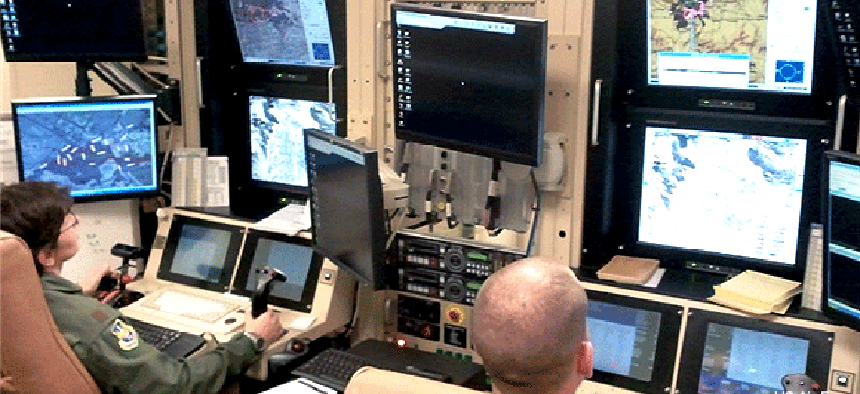Do video gamers make the best drone pilots?


Connecting state and local government leaders
As unmanned aircraft becomes more sophisticated, the military finds gaming skills more important than actual flight experience.
About 15 years ago I was asked to fill in for GCN's military reporter and cover a simulation conference in Orlando. I learned a lot at that event, and met quite a few of the pilots who were actually flying drones on combat missions at the time (yes, they’ve been around that long). The biggest surprise was that they were actual pilots. They suited up for each assignment, went to a briefing, and then strapped into their virtual cockpits for the duration of their missions.
But that was a long time ago. The earliest unmanned aircraft flew like normal planes. Pilots used a stick, moved the flaps and pretty much did everything they normally would inside an actual cockpit. Today, things are different.
First, unmanned drones are really smart. They can take off, fly to their targets, launch ordinance, take photos, defend themselves and return home to land without much human intervention. This is especially true for robots like the Navy's new X-47B.
The second big factor in drone warfare is that the military has come to rely heavily on unmanned craft, bringing so many into service that there are more drones than qualified pilots. The Defense Information Systems Agency is even planning on the need to store exabytes worth of data coming from drones and satellites.
So I wasn't too surprised to read on the NBC News Tech site that the military is trying to recruit video gamers more so than pilots for flying drones these days. Even setting aside the super-advanced X-47 model, most drones these days need more minding than actual piloting. According to the article, actual pilots have more trouble with the new craft because it involves mostly sitting around watching the screen and not actually flying. In one study, pilots were asked to wait four hours for a drone to reach a target. They became distracted, read books, got a snack and didn't pay much attention to the robot during the down time.
Couple that with the fact that, according to the article, most newer control schemes for drones are designed for people with little or no pilot experience, with one even incorporating a PlayStation 2 video game controller, and you have a different skill set needed to run drones these days. The military is filling the acute need for drone pilots by finding recruits with many hours of video game playing under their belts, giving them basic flight training and putting them into the virtual cockpit.
I know a lot of people will likely be horrified by this, but being a gamer myself, it totally makes sense. Gamers have a unique set of skills. We are really good at interpreting our screens for visual clues about our environment and have a ton of patience if needed. For gamers, it's really no big deal to sit in front of our screens for hours on end, paying attention to what's going o, and intervening only if needed. I play a game now called Skyrim that records how long I've played each time I save it, and the last time I checked I was up to 357 logged hours. I'll probably soar well past 600 by the time I'm finished.
Now, I'm not volunteering for the drone program, though I bet I would be pretty good at it. But I am saying that I'm confident that my fellow gamers can run the program just fine given the needs of the military and the makeup of the equipment. It's just another form of gaming, albeit one with much more serious implications for the real world.
NEXT STORY: Is government ready for Google Glass?




